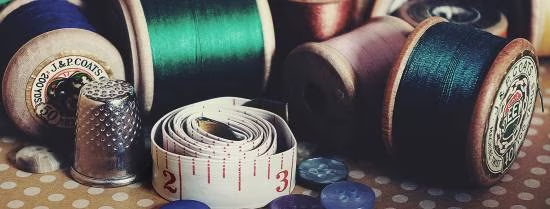During the third term, the master’s course "Heritage and Fashion" kickstarted as part of the European project "Re-Frame Fashion" (Erasmus Plus - Strategic Partnership). With the help of innovative teaching methods, EUR developed the “Heritage and Fashion” course. Topics that were covered during the course were amongst others: economics of fashion, heritage and crafts; fashion museums and archives; storytelling and the sleeping beauties (or in other words, revitalising of dead brands); heritage, sustainability and innovation in the denim industry. In particular, storytelling appears to be an important tool for the fashion industry due to the necessity to differentiate the various products or brands and to add emotional value to them. Heritage and tradition are at the core of storytelling. Even new fashion products and brands are imbued with a historical flavor and sense of legendary quality, with the help of storytelling and revived craftsmanship.
During the entire course, five groups of students worked on a case study on the European Fashion Heritage Association (EFHA). In the first week, Marco Rendina, managing director of the European Fashion Heritage Association (EFHA), introduced the association and the challenges it faces. At the same time, students received training by Carla Gatt, senior editor at the RSM case development centre, on the nature of case studies and their teaching notes, along with how to write them. Each group of students chose a specific challenge faced by the European Fashion Heritage Association as the focus of their analysis for the entire course. Students worked together toward writing a case study, teaching notes and final presentation on this subject which stimulates students’ analytical skills and creative thinking.
Inspired by presentations form high quality guest lecturers such as Anna Mignosa (EUR), Marion Poortvliet (founder of Crafts Council Nederland) Sonnet Stanfill (senior curator Victoria and Albert Museum) and Ninke Bloemberg (fashion curator at Centraal Museum), students developed five different cases studies. At the end of the course, students pitched the case online to a jury consisting of Marco Rendina, Carla Gatt, Susanne Vegter (founder and director of STUDIOVEGTER) and Lorenzo Duchi (Education Development Officer at EUR). These cases were thoroughly analysed, and on top students came up with creative and innovative solutions. According to Vegter: “Many companies are struggling with complex issues and could benefit from a new objective perspective with scientific foundations”.
This course was collaborative in its nature and would not have been possible without the commitment and enthusiasm of the Innovation Hub at ESHCC together with the Community for Learning and Innovation (CLI).




